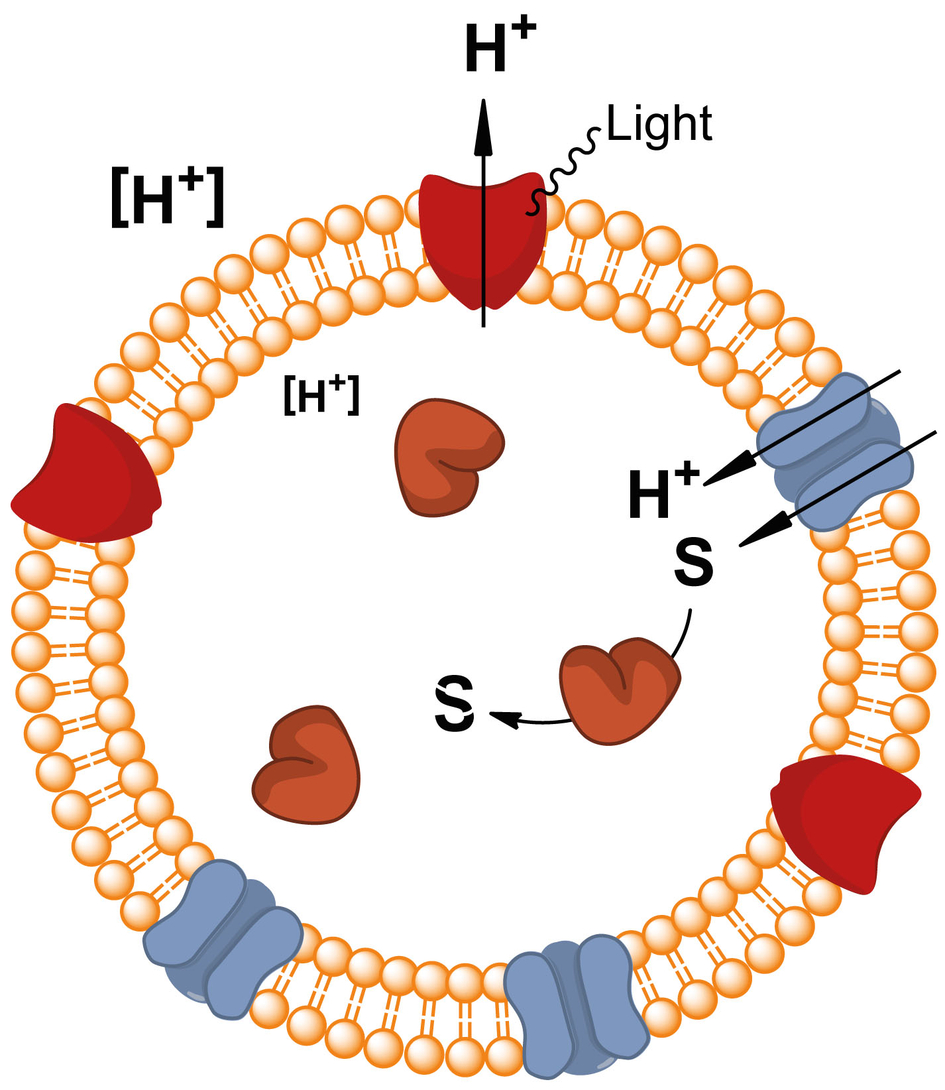
Building autonomous synthetic organelles and cells with a defined function using a repertoire of functional modules (toolkit) and containing inside a minimal metabolism for survival, represents the ultimate goal of this project group.
Such complex processors will open a wide variety of possibilities ranging from environmental to medical applications. One of the most important challenges will be to provide a large repertoire of engineered and modular biomolecular-transport and -energy conversion systems for assembly of nanoreactors with diverse functionalities in lipid bilayers and block copolymers.
Initially, modules will include light-driven proton pumps and proton-driven solute transporters in the membrane, and metabolizing enzymes inside the container. Next, more complex powering systems will be explored such as combinations of light-driven proton pumps with sodium/proton antiporters with the objective: to energise sodium-driven solute transporters. This will significantly increase the repertoire and specificity of translocating modules.
The availability of numerous, highly specialized membrane proteins in milligram amounts offers the unique opportunity to use them as building blocks and toolkit to assemble molecular factories in the form of nanoreactors and functional surfaces using bottom-up approaches.
This project group has a strong expertise and knowledge in biochemistry, function and structure of membrane proteins. Furthermore, the group already possesses a significant number of recombinant transport proteins for different solutes such as peptides, sugars, amino acids and antibiotics that can be used as modules for engineering and assembly of nanoreactors.